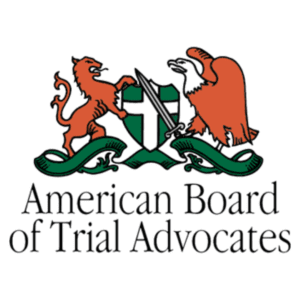Comprehensive Guide
When a person dies due to someone else’s negligence or wrongful act in Kentucky, two distinct legal remedies may be available: survival actions and wrongful death actions.
While both address harms arising from the same incident, they serve different purposes, benefit different parties, and recover different types of damages.
Understanding these differences is crucial for families seeking justice after losing a loved one.
Before diving into the details, it’s important to note that Kentucky’s approach to these legal actions has several unique features that distinguish it from other states’ laws.
This comprehensive analysis will examine both types of claims and why pursuing one, the other, or both matters significantly for recovery.
Legal Foundation and Basic Definitions
Survival Actions in Kentucky
Survival actions in Kentucky are governed by KRS 411.140, which states:
“No right of action for personal injury or for injury to real or personal property shall cease or die with the person injuring or injured, except actions for slander, libel, criminal conversation, and so much of the action for malicious prosecution as is intended to recover for the personal injury.”
In essence, a survival action allows the deceased person’s claims to “survive” their death.
These are claims the deceased could have brought themselves had they lived.
Survival actions specifically focus on the deceased’s experience between the time of injury and death.
Wrongful Death Actions in Kentucky
Kentucky’s wrongful death statute (KRS 411.130) provides that:
“Whenever the death of a person results from an injury inflicted by the negligence or wrongful act of another, damages may be recovered for the death from the person who caused it, or whose agent or servant caused it.”
Unlike a survival action, which focuses on the deceased’s experience, a wrongful death action focuses on compensating surviving family members for their losses resulting from the death.
Key Differences
Temporal Focus and Underlying Claims
The most fundamental difference between these actions lies in their temporal focus:
Survival Actions
Focus on the period between injury and death.
These claims center on what the deceased person experienced before death, including pain and suffering, medical expenses incurred, and lost income during that period.
Wrongful Death Actions
Focus on losses occurring after death.
These claims address the impact of the death on surviving family members, including loss of financial support, companionship, and services.
Who May File the Claims
Both types of actions must be initiated by the personal representative of the deceased’s estate:
For survival actions, the personal representative acts on behalf of the estate itself.
For wrongful death actions, the personal representative prosecutes the action but does so for the benefit of specific surviving family members.
Recoverable Damages
The types of damages recoverable differ significantly between the two actions:
Survival Action Damages
Survival actions seek to recover damages the deceased could have recovered had they lived, including:
Medical expenses incurred before death
Lost income from the time of injury until death
Pain and suffering experienced by the deceased before death.
Wrongful Death Damages
Wrongful death claims seek damages for:
Funeral and burial expenses
Loss of the deceased’s future income and earning capacity
Loss of companionship and consortium
Loss of services that the deceased would have provided
Loss of inheritance
Punitive damages (if the act was willful or grossly negligent)
Distribution of Damages
How damages are distributed differs significantly between the two actions:
Survival Action Distribution
In a survival action, any damages recovered go to the deceased’s estate.
These funds are first used to pay debts of the estate, including medical bills and other expenses.
Any remaining amount is then distributed according to the deceased’s will or, if no will exists, according to Kentucky’s intestacy laws.
Wrongful Death Distribution
KRS 411.130 establishes a strict order of distribution for wrongful death recoveries:
If the deceased leaves a spouse but no children, the entire amount goes to the spouse
If the deceased leaves a spouse and children, half goes to the spouse and half to the children
If the deceased leaves children but no spouse, the entire amount goes to the children
If the deceased leaves neither spouse nor children, the recovery passes to the parents
If no spouse, children, or parents survive, the recovery becomes part of the deceased’s estate
A will cannot alter this statutory distribution scheme.
Why It Matters Which Claim Is Pursued
Maximizing Total Recovery
Pursuing both actions can maximize the total recovery by addressing different aspects of harm:
The survival action compensates for the deceased’s pre-death suffering and expenses
The wrongful death action compensates for the family’s losses resulting from the death
Kentucky law specifically allows for joinder of wrongful death and personal injury actions, as noted in KRS 411.133.
Different Beneficiaries
Who benefits from each action differs:
In survival actions, creditors of the estate have first claim on any recovery, with remaining funds distributed according to the will or intestacy laws
In wrongful death actions, the statutory beneficiaries receive the recovery directly, and these funds generally bypass the creditors of the estate
Statute of Limitations Considerations
The timing for filing these claims differs slightly:
The statute of limitations for a wrongful death claim in Kentucky is generally one year from the qualification of the personal representative, with up to two years from the date of death if the representative is appointed after one year from death.
The limitation period for survival actions involving personal injury is generally one year, though special rules may apply depending on the circumstances.
Tax Implications
The tax treatment of recoveries differs based on the type of damages:
The IRS considers settlements as compensatory damages, meaning they’re intended to provide compensation for losses.
Generally, compensatory damages in both actions are not taxable as income.
However, punitive damages are typically taxable.
Procedural Considerations and Strategic Choices
Joining Both Actions
Kentucky law specifically permits joining wrongful death and personal injury (survival) actions in the same lawsuit, allowing for efficiency in litigation.
This approach enables comprehensive recovery for all aspects of harm arising from the death.
Proving Different Elements
Each action requires proving different elements:
Survival actions require demonstrating the deceased’s conscious pain and suffering before death, which may require medical testimony
Wrongful death actions focus on demonstrating the economic and relational losses to survivors
Settlements and Negotiations
When negotiating settlements, different approaches may be necessary for each type of claim:
Survival claims may focus on medical records, witness testimony about the deceased’s condition before death, and expert testimony about pain and suffering
Wrongful death claims typically require economic experts to calculate future lost earnings and other financial impacts on survivors
Conclusion
Understanding the distinctions between survival actions and wrongful death actions in Kentucky is essential for maximizing recovery after a loved one’s death due to another’s wrongful acts.
While both actions arise from the same incident, they address different harms, benefit different parties, and recover different damages.
In many cases, pursuing both claims is the most comprehensive approach to securing full compensation for all losses.
However, strategic decisions about which claims to emphasize should be made in consultation with an experienced attorney who understands Kentucky’s specific laws governing these actions.
The personal representative of the deceased’s estate plays a crucial role in both types of actions, serving as the party who brings the claims.
However, they serve different beneficiaries in each context- the estate and its creditors and heirs in a survival action, and the statutory beneficiaries in a wrongful death action.
By understanding these important distinctions, families can make informed decisions about pursuing legal remedies after losing a loved one due to another’s wrongful conduct.
Our attorneys understand the damages and can ensure you claim everything you’re entitled to.
Contact Sam Aguiar Injury Lawyers
The experienced team of attorneys at Sam Aguiar Injury Lawyers is always ready to discuss compensation claims for injuries and death.
We provide a free case assessment to any potential client.
During this assessment, we will review all the information and advice on how best to proceed, giving you peace of mind without financial obligation.
Call 502-888-8888 or 859-888-8000.









